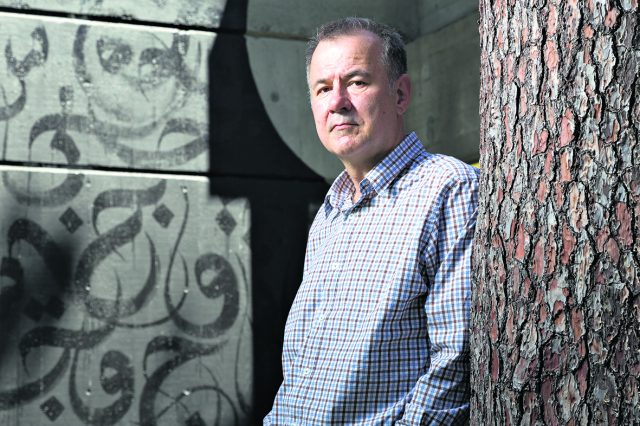
On October 12, 2002, Mark Briskey was playing with his baby son when he received a call from Australian Federal Police Commander Tim Morris about the Bali bombings.
One day later he would be one of the first AFP officers on the ground to be confronted with the horrifying reality of the Bali bombings.
The former Curtin University lecturer said that 20 years later, he still remembers the images he was confronted with, as both Indonesia and Australia prepare to mark the 20th anniversary of the bombings with memorial services in Bali and, in WA, at Kings Park, next Wednesday.
Mr Briskey said the horrors he encountered that day, and in the subsequent six weeks he spent in Bali, are never far from his mind.
“If I think carefully about it or if someone talks to me about it, it comes back very quickly because there are things in Bali which most people would never get used to seeing or see at all, so it doesn’t take long for me to really get back into that space again of what that entire phenomenal and in many ways just very, very forever….it impressed itself on me completely,” he said.
“Sometimes I think no, it’s not difficult to talk about but then when I start talking about it, it is difficult, yes.
“I had no idea how bad it would be.
“I’d previously seen different things, bombings in Pakistan, I used to be posted there and other places like that, but no when the plane actually landed in Bali, when we first exited the plane, the entire tarmac was alive with other defence planes and you instantly knew a major incident had occurred.”
As part of his duties, Mr Briskey had to undertake tasks that, simply put, were horrifying necessities.
“Some of the things you may have heard about that aren’t palatable to talk about, seeing bodies that were destroyed, finding bits of human and trying to determine how much of a piece of a human do you keep to try and identify.
“One of my roles was keeping a book or an album of those deceased people whose faces you could recognise, and there weren’t very many of them because most people suffered horrific burns, if not the total devastation of their body.
“When you went to Sanglah Hospital there were literally people lying along the pavement with sheets over them with blocks of ice beside them, either full deceased persons or bits and pieces.
“We also had two psychologists come up from the AFP who were working with us and I know that I had responsibility for team members there too and I know I sent a number of people back home to Australia who clearly weren’t coping.”
Mr Briskey’s story, his relationship with the Bali bombings, did not end when he left the Indonesian island.
He was sent to Afghanistan to interview Australian terrorists, among them the infamous David Hicks, before being appointed to head up the Australian Federal Police office in Jakarta, pursuing those responsible for not only the Bali bombings but other terrorist actions that plagued Indonesia over the next few years.
“I lived in Indonesia for three years,” he said.

”Day to day I didn’t live in a compound, as you probably understand there was constant chatter that intelligence and policing were receiving about terrorist figures and plans for subsequent attacks and bombings in Indonesia, which were occurring.
“There were minor pipe bombings, when I was there, they blew up the JW Marriot Hotel the night before the Australian Embassy Ball was going to occur, there were some pretty gruesome things.
“I had to keep parts of the bomber from the Marriott secure in our office refrigeration for transport back to Australia.
“There was always a nervousness, my job was just unending because I’d always be receiving calls, trying to coordinate things, cycling people through Operation Carlisle, which was the major investigation team pursuing the bombers.
“There were a number of terrorism interests at the time, but just after the Bali bombings there was a lot of desire to help Indonesia,
“There were always multiple terrorism threats occurring at the time, it wasn’t just Jemaah Islamiyah, there were other groups that were talking about potential attacks and many of them did carry out those attacks. “
Jemaah Islamiyah member Umar Patek was convicted in 2012 for his involvement in the Bali bombings, sentenced to 20 years in prison.
Prosecutors did not seek the death penalty.
He received a reduction of his sentence as part of Indonesia’s Independence Day celebrations in August, making him eligible for parole after serving just 10 years for his role in an bombing that claimed the lives of 202 people, including 88 Australians, and Mr Briskey finds it hard to reconcile the terrorist he worked to convict could soon be a free man.
“It’s hard to reconcile, it’s quite offensive that he could be out,” he said.
“Umar Patek should still be inside where he belongs to be as a clear and significant message that if you’re not executed, you’ll be locked up for the rest of your life for this.”
Mr Briskey has returned to Bali just once after he finished up in Jakarta, but said he may be going to the Bali memorial next Wednesday.













